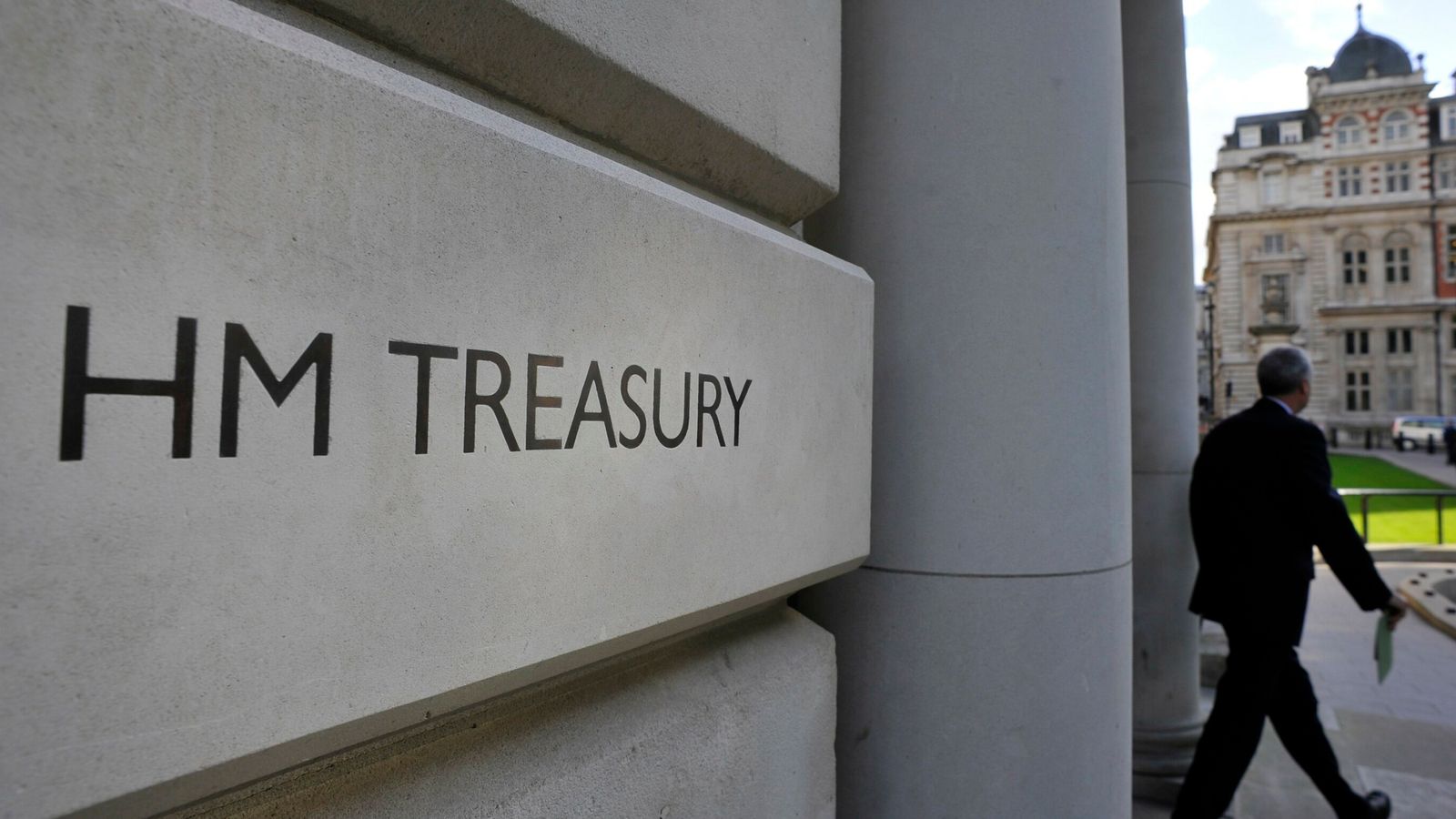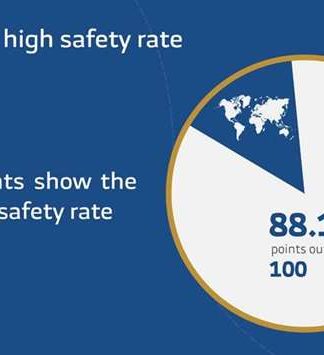Stronger public finances weaken government’s stance on pay, IFS says ahead of budget
The IFS says a clouded outlook for the economy is the only major reason the Treasury could justifiably use to maintain its position on public sector pay rises.
Ed Conway
Economics & data editor @EdConwaySky
Tuesday 28 February 2023 05:21, UK
A man leaves the government Treasury buildings in Whitehall in central London October 19, 2010. Britain will delay spending on replacing its Trident submarine-based nuclear weapons system as part of sweeping cuts to the defence budget to help curb a record deficit, Prime Minister David Cameron said on Tuesday. REUTERS/Toby Melville (BRITAIN – Tags: POLITICS BUSINESS)
Why you can trust Sky News
The government is set for a fiscal windfall of tens of billions of pounds thanks to stronger growth and lower energy prices, making the argument not to contribute to higher public sector pay all the more difficult to maintain, according to the Institute for Fiscal Studies (IFS).
In an analysis released ahead of the 15 March budget, the IFS said that it expected the government to borrow around £30bn less this year than it had forecast in November.
While around £6bn of this is likely to be spent on another freeze of fuel duty, this would still leave borrowing nearly £25bn lower than previously expected.
The IFS said that with the gap between public and private sector pay having widened considerably during the recent spike in inflation, “it is difficult… to see an end to public sector pay disputes that does not involve the Treasury providing some extra cash to departments”.
It said that a CPI-matching 5.5% increase in pay across the public sector would cost around £5bn – an amount which was small compared with the recent underspend.
It added that while the government had argued about the inflationary consequences of higher pay, “this is not a strong argument”.
“Most obviously, the impact of injecting £5bn into an economy with an annual GDP well in excess of £2,000bn would surely be modest,” the IFS declared.
The IFS said that while economists had previously expected a sharp recession in 2023, those expectations had since changed, in large part because wholesale energy costs had fallen more than expected.
Conservative MP John Redwood10:59
Play Video – Tax cuts: ‘Get on with it!’
Tax cuts: ‘Get on with it!’
However, it warned that this short-term improvement masked a deeper problem: the UK’s long term growth potential remained disappointingly weak, raising questions about its ability to generate taxes in future.
Isabel Stockton, senior research economist at the IFS, said: “It is difficult to see an end to public sector pay disputes and industrial action that does not involve the Treasury providing additional funding to departments.
Read more from business:
Manchester United shares tumble on report that bidders have fallen short
“Short-term improvements in the borrowing outlook could allow for one-off bonuses or backdated pay awards for public sector workers.
“But it is far from clear that these improvements will last and, if the Bank of England is right, the UK’s medium-term growth outlook may have deteriorated.
“Short-term savings cannot finance permanently higher spending – which is what a higher consolidated pay rise for public sector workers would entail.
“The chancellor likely has less fiscal room for manoeuvre than recent headlines might suggest.”
Related Topics
UK Economy






























